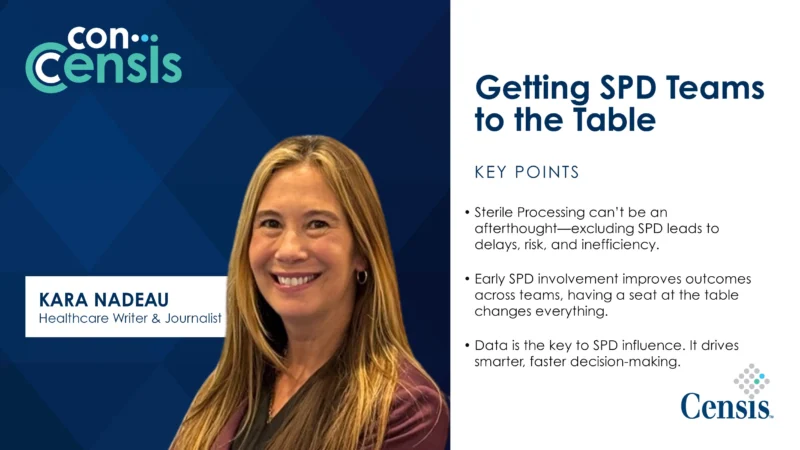Smarter Sterile Processing Starts with Data—Boosting Efficiency, Cutting Costs, and Improving Patient Care
In a healthcare ecosystem increasingly driven by data, sterile processing departments (SPDs) find themselves at a crossroads—balancing precision and pace, safety and speed. As hospitals look to reduce inefficiencies and protect patient safety, analytics tools are transforming sterile processing from an often overlooked backroom function into a vital, data-enhanced frontline of care. Research shows that missing instruments in surgical trays can cause significant delays and financial losses—costing hospitals hundreds of thousands annually—underscoring the critical role of real-time analytics in preventing these inefficiencies.
So, how can frontline healthcare teams merge hard metrics with the soft skill of intuition to streamline operations, improve quality, and ensure safety? What role does data storytelling play in elevating sterile processing strategy?
Welcome to ConCensis. In the latest episode, host Daniel Litwin, the Voice of B2B at MarketScale, sits down with Beth Perry, Business Intelligence & Analytics Engineer at Censis Technologies, to explore how blending data and intuition is not only possible but necessary in modern SPD operations. The two discuss Perry’s unconventional path from journalism to healthcare analytics, and how narrative instincts can make raw numbers actionable.
Key Takeaways from the Episode…
- Intuition Amplifies Metrics: Data analysis in SPDs mirrors journalism—asking the right questions, following patterns, and translating complexity into action. Beth highlights how technician intuition, like recognizing patterns in tray assembly speed, is vital for interpreting data trends.
- A Dashboard is Only as Good as Its Story: Beth shares insights on building dashboards that reveal both current performance and actionable paths forward. Clear visualization of productivity, quality, and instrument tracking empowers staff to trust their instincts and take decisive action.
- Human-Centric Analytics Lead to Real Impact: From reducing incomplete tray rates from 14% to 9% in one month to identifying training slowdowns, Beth emphasizes how visibility and ownership among SPD teams drive real performance gains.
Beth Perry is a seasoned business intelligence and analytics professional with over 15 years of experience developing data solutions across healthcare, logistics, and technology sectors. At Censis Technologies, she has held multiple analytics-focused roles, most recently serving as an Engineer in Business Intelligence & Analytics, where she helped innovate the company’s AI² platform for sterile processing departments. Known for her strong communication skills and ability to bridge technical insights with business needs, she has become a key driver of data-informed strategy and operational efficiency in healthcare settings.
Article written by MarketScale.



